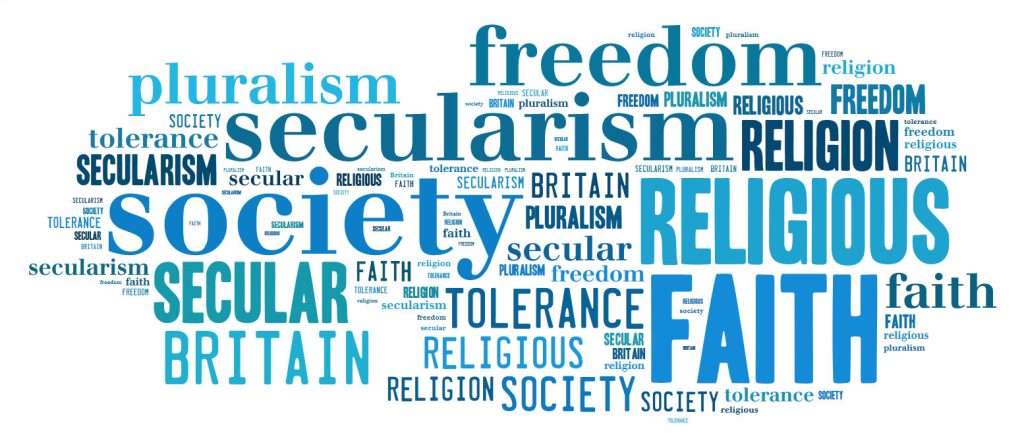
Secularism, religious freedom, and managing diverse societies are essential topics in our world today. “Religious freedom and secularism: Navigating diverse societies” can be a point of intersection for these themes, as they all address the complex and multi-dimensional entity that is human rights, particularly in the context of religion and public life.
The Role of Secularism in Diverse Societies
Secularism holds a crucial role in the United States, a nation known for its religious diversity. A secular state ensures freedom of religion, safeguarding the religious beliefs of its citizens while separating religious institutions from state control. This means that the government does not favor one religion over another, allowing religious practices to be freely exercised by individuals, as long as they do not infringe upon the rights of others. The U.S. Federal Government, for instance, maintains a clear separation between church and state. Thus, secularism provides a viable way of managing diverse societies.
Public schools in the United States are an example of this secular society. Here, various religious groups are given equal consideration, fostering an atmosphere of religious pluralism. Indeed, the role of religion in public life takes on a special significance in such settings, as students from different faiths are schooled under one roof.
Secularism and religious freedom are intimately linked. Secularism upholds human rights, particularly the freedom of conscience, which includes the right to profess, practice and propagate religion freely. The Oxford University Press recently published a research concluding that secular societies are more inclined to ensure religious liberty, showcasing the importance of secularism in managing societies where religious diversity is the norm.
Dynamics of Religious Freedom in Contemporary Societies
At the heart of the principle of ‘religious freedom’, lies the freedom of conscience: a fundamental human right protecting religious belief. There is a crucial need to understand the dynamics of religious freedom in contemporary societies, particularly given the increasing religious diversity and the contemporary challenges this entails. In the United States, for instance, the First Amendment guarantees the free exercise of religion, implying that the state must not interfere in individual religious faith.
Echoing this state of non-interference, the public sphere has become more accommodating of religious diversity in many regions around the world. This change is linked to the evolving relationship between religion and state, which is being revised continually to uphold the rights and freedoms of individuals and communities in a pluralistic society.
Religious Freedom and Secularism in the United Kingdom: The United Kingdom shares the United States’ commitment to religious freedom and secularism, sans a state religion. Here, the concept of ‘freedom to practice’ is regarded as pivotal. The European Court of Human Rights upholds that states, including the UK, must facilitate this freedom, presenting a picture where religious traditions of different faiths are given the leeway to thrive.
The Need for Religious Symbols: Across the globe, religious symbols hold immense importance for religious communities, particularly in the public sphere. These symbols allow us religiously motivated expressions, which are integral parts of our practices and beliefs. Society’s acceptance of these symbols, societies are understanding diverse societies and catering to their expression of faith.
Key Factors Influencing Religious Freedom
Secularism and religious freedom are influenced by a multitude of factors. These factors include the presence of religious minorities, who may face discrimination or exclusion in various societies. Cambridge University Press recently released a study highlighting the challenges faced by religious minorities. To promote religious freedom, such issues need to be addressed at state and societal levels.
Denying religious freedom infringes upon human rights law- an area of grave concern highlighted by New York-based human rights organizations. The significance of religious diversity being recognized and respected is vital to achieving true tolerance and coexistence. The University of California Press recently published a study emphasizing the correlation between religious freedom and human rights, further indicating the serious implications of abridging religious right.
The role of religious leaders in encouraging dialogue and understanding between communities of different faiths is another critical factor. They give guidance on how to balance religious beliefs and practices in a pluralistic society. To promote religious tolerance and harmony, they must work towards dispelling myths and correcting misconceptions about different religions.

Understanding Diverse Societies: An Overview
Religious freedom in fact, is a cornerstone of diverse societies, enabling peaceful coexistence among people of different faiths. ‘Cultural diversity’ goes hand in hand with ‘religious diversity’, contributing to rich social and political tapestries worldwide. John Locke argued that religious liberty is essential for a society’s ethical and intellectual health, as it fosters a pluralistic culture where a range of perspectives can be expressed and accommodated. This diversity necessitates the crucial separation between religion and state, thus promoting religious pluralism.
The Core Principles of Secularism
Secularism is defined by a few core principles, which enhance its role in managing diverse societies. These principles include religious freedom, the separation of church and state, and the equal treatment of all citizens regardless of their religious beliefs or non-belief. It is important to note that these principles are not anti-religion; instead, they are designed to protect all religious views.
One crucial principle is the absence of a ‘State Religion.’ The State must not promote any particular religion over others. In a pluralistic society, with diverse religious beliefs and practices, this principle is vital for establishing equality before the law.
Secularism’s resulting ‘freedom of conscience’ has been heavily cited and is considered paramount by most secular societies. Freedom of conscience, the right to change religion or belief, and freedom, either alone or in community with others and in public or private, to manifest religion or belief, are fundamental rights in a secular society.
The domain of ‘Public Policy’ must be secular, where decisions are based on reason, ethics, science, and equality, rather than religious doctrine or dogma. Secular public policy does not discriminate against anyone’s religious belief nor privilege any single religion.
In conclusion, maintaining secularism and religious freedom is essential for managing diverse societies. This requires respect for individual rights and freedoms and a concerted effort to understand and cater to the cultural diversity of societies around the world.





